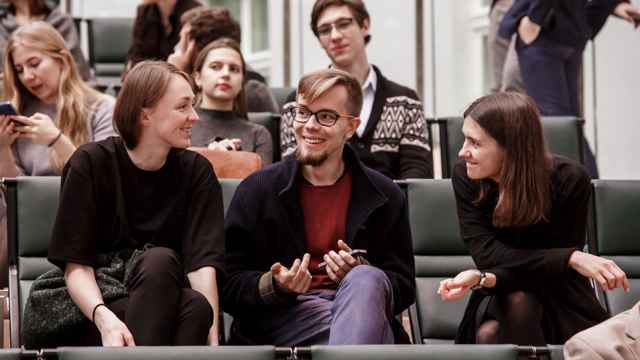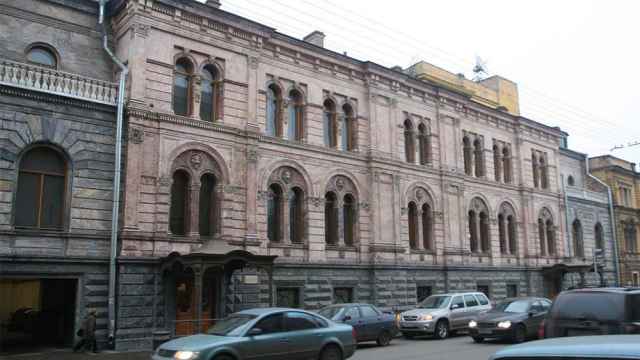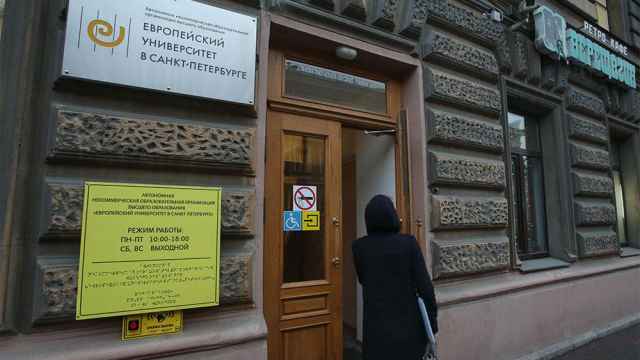Russia has deported an American professor at a prestigious St. Petersburg university who was associated with a U.S. college that was blacklisted by the authorities earlier this year, media reported Monday.
Michael Freese, a professor in St. Petersburg State University's Liberal Arts and Sciences faculty, was banned from returning to Russia until 2026, according to the St. Petersburg-based Fontanka.ru news website.
It added that Russia suspects Freese of cooperating with an “undesirable” organization.
The Prosecutor General’s Office in June labeled Bard College, which had partnered with St. Petersburg State University since 1997 and had a dual-degree program with its Smolny College since 2011, an “undesirable” organization. St. Petersburg State University swiftly terminated its agreements with Bard and wiped information from its website about the partnership between the two.
The university also removed Freese’s profile from the website of its Liberal Arts and Sciences faculty page.
According to the university’s faculty Telegram channel Lupa i Pupa, Freese earned a postgraduate degree from Smolny in 2011, after which he stayed on as a professor and a coordinator for Bard’s exchange program.
Citing fellow professors, it reported that authorities had detained Freese on his way to the university and annulled his contract and visa.
“We are as shocked as Smolny’s students” by Freese’s arrest and deportation, Lupa i Pupa said Monday.
Smolny College’s troubles began in March, as work began on reorganizing the college into a separate university with plans to expand its enrollment and partnership with Bard.
That same month, Russia’s NGO Coordinating Council asked the Prosecutor General’s Office to declare the new university “undesirable,” accusing it of being “part of a global network of controlled educational institutions to educate young people in a pro-Western way, form a protest electorate and inculcate a hostile ideology toward their country.”
A Message from The Moscow Times:
Dear readers,
We are facing unprecedented challenges. Russia's Prosecutor General's Office has designated The Moscow Times as an "undesirable" organization, criminalizing our work and putting our staff at risk of prosecution. This follows our earlier unjust labeling as a "foreign agent."
These actions are direct attempts to silence independent journalism in Russia. The authorities claim our work "discredits the decisions of the Russian leadership." We see things differently: we strive to provide accurate, unbiased reporting on Russia.
We, the journalists of The Moscow Times, refuse to be silenced. But to continue our work, we need your help.
Your support, no matter how small, makes a world of difference. If you can, please support us monthly starting from just $2. It's quick to set up, and every contribution makes a significant impact.
By supporting The Moscow Times, you're defending open, independent journalism in the face of repression. Thank you for standing with us.
Remind me later.






